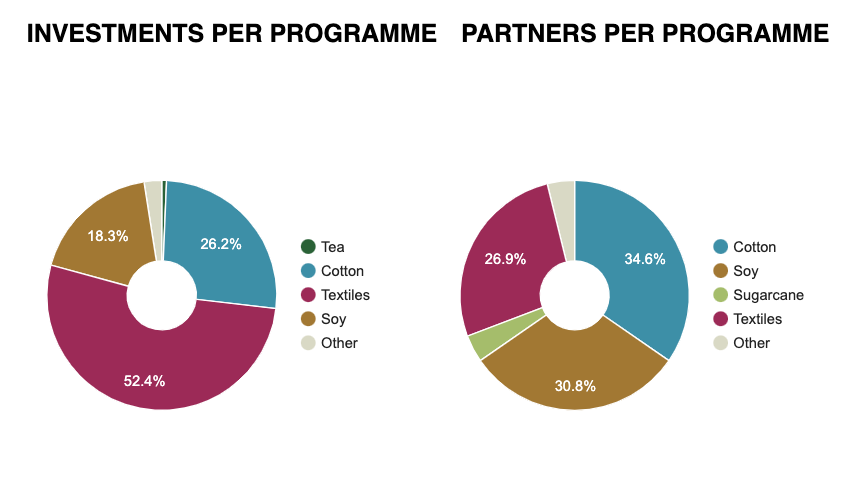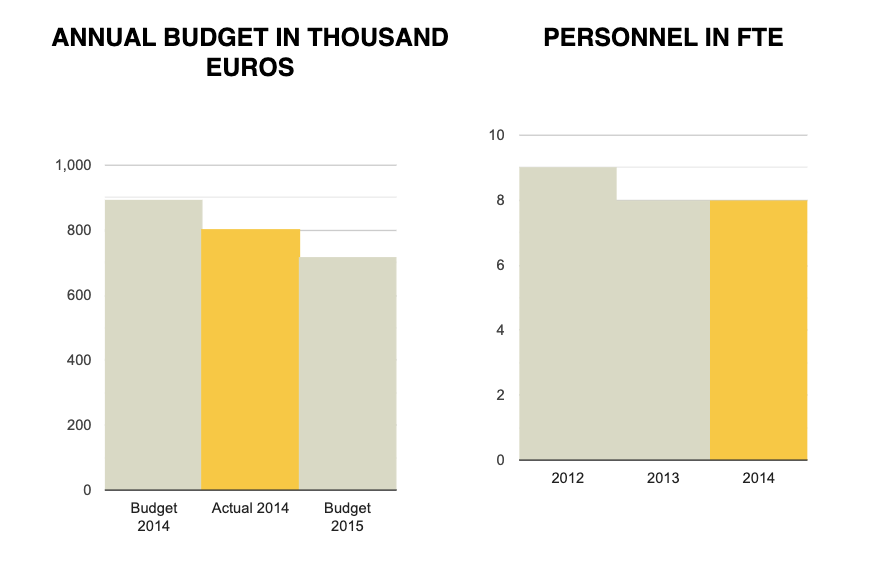REGIONAL COMMODITY PROGRAMMES
Solidaridad has developed an intervention strategy to convince Chinese textile factories to shift their focus from being extremely cost conscious and prioritizing short-term visible benefits to investing their capital in real change.

With the first Round Table on Responsible Soy (RTRS)-certified soy in China, Solidaridad is developing a strategy focusing on the demand side. Our approach is to convince soy importers to adopt responsible procurement policies by engaging not only with China’s top soy importers, but also with players further along the supply chain such as Unilever, McDonald’s, Procter & Gamble (P&G), and representatives of the government and financial sectors.

Solidaridad has helped to pave the way for Better Cotton Initiative (BCI)-certified cotton in China. After overseeing the first verified cotton in 2012, we launched China’s first project for smallholders in 2013, leading to the first smallholders in China receiving BCI certification in 2014. Solidaridad is now looking beyond certification towards making a significant investment of effort in innovation and technology.

EXTERNAL DEVELOPMENTS
The Chinese government is determined to transform the economy into a more environmentally friendly model, even at the cost of 1-2% of growth. Multinationals, which are experiencing increasing criticism from emerging Chinese NGOs, are becoming more proactive in cleaning up their supply chains. These two factors have combined to create more opportunities for Solidaridad’s intervention in the manufacturing sector.
China has witnessed a dramatic upsurge in strikes and protests, from 656 in 2013 to at least 1,378 in 2014. This propelled the central government to be proactive in building more effective mechanisms to resolve labour disputes, allowing for more collective bargaining. In response, Solidaridad has strengthened its efforts to build worker-manager communication mechanisms through factory programmes.
Agribusiness and climate change have been a major concern internationally, with a consensus on curbing deforestation. According to FAO projections, to feed the world’s growing population, soybean production will need to double to 500 million metric tons by 2050. This expansion represents a major threat to ecologically high-value regions in South America. Despite commitments by European companies to achieve zero deforestation in soybean sourcing, there is so far no equivalent demand for sustainability from China, which accounts for 65% of global soy export volumes.

RESULTS AND PARTNERSHIPS
According to an article in The Economist in September 2014 entitled “Curbing Climate Change: The Deepest Cuts,” there are two policies worldwide that may have the greatest impact on climate change by 2020: Brazilian forest preservation and Chinese enterprise energy efficiency. These remain crossing-cutting themes for Solidaridad in China.
Solidaridad has long been engaging leading soy actors in China. In 2014, we reached out to top soy importers who represent more than 50% of the country’s 74 million metric tons of soy imports. By the end of 2014, we had successfully built an alliance with the Paulson Institute, TNC and WWF, to jointly mobilize Chinese demand for responsible soy produced in South America. The US Gordon and Betty Moore Foundation granted funds to the consortium to launch this innovative initiative.
The two-year project involves establishing a Sustainable Soy Trade Platform for engaging leading soy value chain actors to develop an aligned strategy on responsible procurement. This platform will start by urging Brazilian soy producers to stay in compliance with laws, e.g. Forest Code to curb deforestation. In phase 2, the project will be expanded to engage with soy producers and other stakeholders in Argentina and Paraguay.
China’s manufacturing sector, especially its textile industry, is notorious for generating grenhouse gases, toxins and wastewater. At Solidaridad we strengthened our partnerships with brands such as H&M and C&A to provide hands-on support to factory owners wishing to engage in cleaner production. With active participation from factories, the Better Mills Initiative achieved significant progress: among 40 participating mills, 11 million tons of water was saved or responsibly treated, and CO2 was reduced by 110,000 tons in 2014 alone.

DONORS AND ORGANIZATIONS
At the end of 2014 Solidaridad set up a strategic partnership with the Paulson Institute, The Nature Conservancy, and WWF to launch a sustainable soy platform sponsored by the Gordon & Better Moore Foundation.
Solidaridad is continuing to engage China’s leading soy stakeholders, strengthening its partnership with the China Soybean Industry Association, Sinograin, and JIUSAN Group in both the soy production programme, but also in market development.
With the success of the first BCI-verified cotton by smallholder farmers in China, Solidaridad strengthened its partnership with VF Corporation, a global apparel company including Lee Jeans, Wrangler Jeans, and the North Face.
Going beyond production training, Solidaridad has started to address gender issues. With secured funding from the Walmart Foundation, Solidaridad launched a gender empowerment project to improve the lives of female cotton farmers.
Solidaridad continues its strategic partnership with H&M to support over 40 factories in the Better Mill Initiative (BMI). The success of the BMI has engaged other brands including C&A, Tommy Hilfiger, and Primark to partner with Solidaridad.
Recognizing the importance of building consumer awareness, the Alibaba Foundation sponsored a project for Solidaridad to develop a public awareness video focused on water issues in the textile industry in China. Solidaridad entered a partnership with the Dutch consulate-general in Shanghai to organize CSR-training workshops for Dutch companies and suppliers in China.
